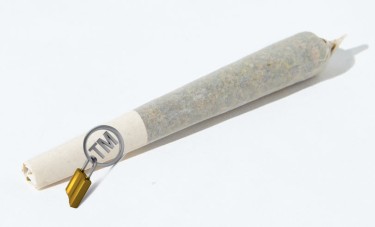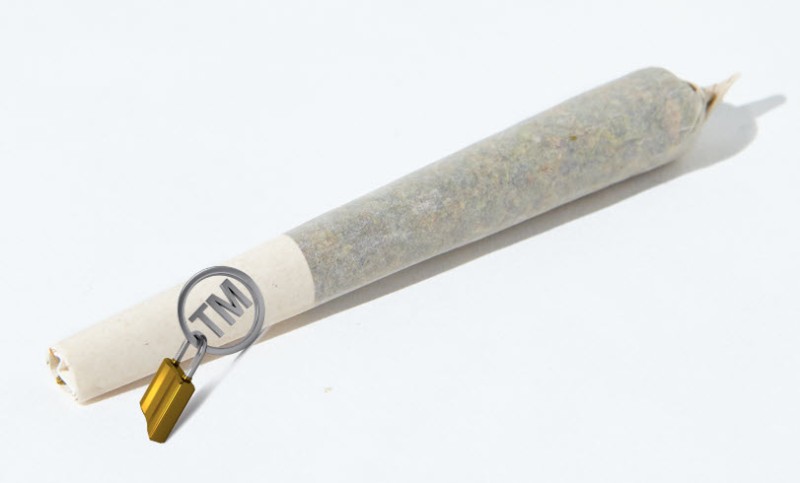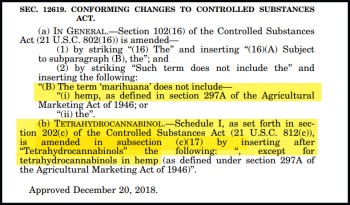
As the legal marijuana industry grows and gains wider acceptance, a new conflict looms on the horizon. Big Tobacco, well-known for its influence in the tobacco industry, is now focusing on the flourishing cannabis market.
The gradual legalization of marijuana has captured the interest of major tobacco companies, prompting them to explore potential prospects within this emerging industry. These industry giants, leverage their substantial resources, well-established distribution networks, and expertise in tobacco product manufacturing, perceive the legal cannabis sector as a highly profitable avenue for further growth.
However, Pre-rolls and cones, which have become popular choices among cannabis consumers, could face significant challenges in the wake of Big Tobacco's involvement.
Big Tobacco's claims against major cannabis companies and the celebrities associated with them are often unbelievable and may even seem comical. In recent trademark lawsuits, a tobacco company argued that commonly used products in the rolling paper industry, such as pre-rolled cones and organic hemp papers, should be considered paraphernalia.
The most recent claim suggests that pre-rolled cones, organic hemp papers, and hemp gum are specifically designed for use with marijuana rather than traditional rolling papers sold by some tobacco companies. The Boston Globe reported that "Big Tobacco is coming for legal marijuana," referring to Altria, the owner of Marlboro, and their efforts to enter the cannabis industry. While some Big Tobacco companies try to enter the market through acquisitions, others resort to attacking their competitors. Here are a few trademark lawsuits targeting the industry that appear to have hidden motives.
Big Tobacco's Trademark War on Cannabis
High Times became aware of an attempt to tarnish the reputation of cannabis consumers, which can be seen as a hypocritical argument. Republic Brands, a tobacco company owned by Don Levin, manufactures and sells OCB, Top, Job, and Zig Zag rolling papers. Republic filed a lawsuit against HBI International, the parent company of RAW, a more popular rolling paper brand, through an injunction announced on February 9. This lawsuit stirred controversy and put RAW founder Josh Kesselman in the spotlight. High Times also got involved in this legal battle when evidence emerged suggesting that rolling papers are intended for use with marijuana.
RAW faced criticism for claiming that their papers were made in Alcoy, Spain, known for producing renowned Bambú papers and other brands. In Republic's legal filings, they attempted to invalidate RAW's trademark by arguing that Republic aimed to make cones and other materials used for consuming cannabis illegal. Republic's attorneys presented their case in federal court, stating that cones were developed in the 1990s specifically for holding marijuana. They are primarily marketed for that purpose today." Republic's attorneys argued that pre-rolled cones violated the Controlled Substances Act in relation to drug paraphernalia.
The court documents included various social media images from RAW ads showing Miley Cyrus and Wiz Khalifa using the cones. Republic also highlighted RAW's advertisements in High Times Magazine as evidence that the rolling papers are predominantly used for marijuana and should be deemed illegal. The court filings included photos of events like The Emerald Cup, past issues of High Times, and posts from the Cannabis Cup.
HBI International retaliated by filing a counterclaim against Republic. The jury determined that HBI International violated the Illinois Uniform Deceptive Trade Practices Act by falsely claiming that their rolling papers were manufactured in Alcoy. However, the jury also ruled in favour of HBI's counterclaim, stating that Republic had infringed on one of its copyrights and trade dress. As a result, HBI was awarded over $1 million in lost profits and statutory damages. According to the counterclaim, the company has a history of filing lawsuits against smaller competitors to strengthen its position in the market.
The Battle over Trademarks Rages on.
RAW is not the only company facing legal challenges. According to a report by Law 360 in February of last year, ITG, the maker of Kool menthol cigarettes, sued Capna Intellectual, which operates as Bloom Brands, accusing them of violating state and federal trademark laws by using a logo similar to Kool's distinctive logo. Some argue that menthol cigarette makers have unfairly targeted Black communities.
In this case, the focus was on the interlocking O's in the logos, although one could argue that other logos, such as the one used by Dolce & Gabbana, have similar characteristics. Court documents reveal that Bloom filed a trademark application with the U.S. Patent and Trademark Office in 2019, seeking to register a similar mark for e-cigarette and vape sales. ITG claimed that Bloom's actions were intentional, carried out in bad faith, and disregarded ITG's rights in the Kool marks. According to ITG, the purpose was to capitalize on ITG's reputation and dilute the Kool marks.
A crucial aspect of ITG's argument is that the interlocking 'O' design is iconic and distinct enough to deserve broad protection. They contend that a mark incorporating this design on smokable cannabis products could mislead consumers into believing that the brands are affiliated or originate from the same source, as reported by Harris-Bricken in its Canna Law Blog.
Not only candy companies but food companies like Tapatio have pursued legal action against copycat cannabis brands. Lawsuits of this nature often involve multiple motives to eliminate competitors.
Conclusion
As the legal marijuana industry continues to expand and gain acceptance, it faces a new challenge in Big Tobacco's interest and involvement. Major tobacco companies see the legal cannabis market as a potentially lucrative opportunity for growth, leveraging their vast resources and expertise. This has led to trademark disputes and lawsuits targeting cannabis companies, with allegations ranging from the classification of rolling paper products as paraphernalia to logo infringements.
While Big Tobacco's entry into the cannabis industry brings potential advantages and challenges, it underscores the growing significance and profitability of the market. As the industry evolves, it will likely witness more conflicts and legal battles as established players seek to protect their trademarks and market share while smaller competitors face scrutiny.
The ongoing trademark wars serve as a reminder of the complex dynamics and competition within the cannabis industry. As various companies and industries vie for their position in this burgeoning market, navigating legal challenges, protecting intellectual property, and ensuring fair competition remain crucial.
RAW ROLLING PAPERS DRAMA, READ ON...
WHAT IS GOING ON WITH RAW ROLLING PAPERS AND CORPORATE GREED?







